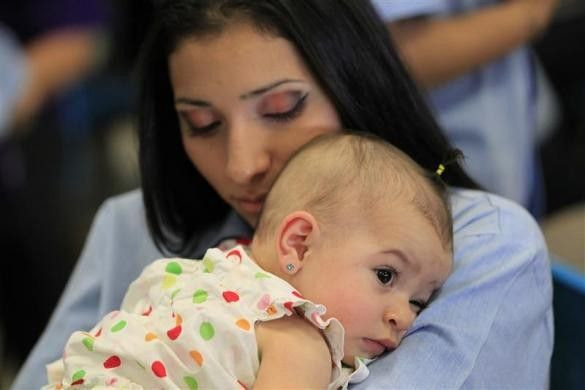Caesarean Babies Tend to Have Weaker Immunity

According to a recent finding, caesarean babies have different strength of intestinal microbes when compared to other babies who were born normally.
Physicians generally perform C-section in cases where the baby cannot be delivered through normal process; mostly when the mother has twins (or triplets), if the baby is large, if there is any abnormality associated with the uterus or in case of a placenta previa ( where the placenta is too low and covers the cervix). At times, even during normal labor, the doctor might want to opt for a caesarean section.
The C-section is usually carried out under the effect of an epidural or spinal anesthesia to create numbness down the waist.
In this study, the specific effects of caesarean section births on the immune system of baby mice were studied thoroughly.
The result showed that pups delivered by C section had developed a considerably lower number of cells which help strengthen the immune system, commented Camilla Hansen from University of Copenhagen in Denmark.
Newborns delivered naturally get exposure to more number of bacteria from the mother than those delivered by C section.
Based on a hypothesis known as the “hygiene hypothesis,” “the newborn baby's immune system in this way learns to distinguish between its own harmless molecules and foreign molecules.”
Mice which were produced by caesarean section showed much lower number of cells that prevent immune cells from attacking other harmless cells.
Many different autoimmune diseases such as type 1 diabetes and allergy are caused by a similar over-reaction of our immune system.
This report got published in the Journal of Immunology.





















